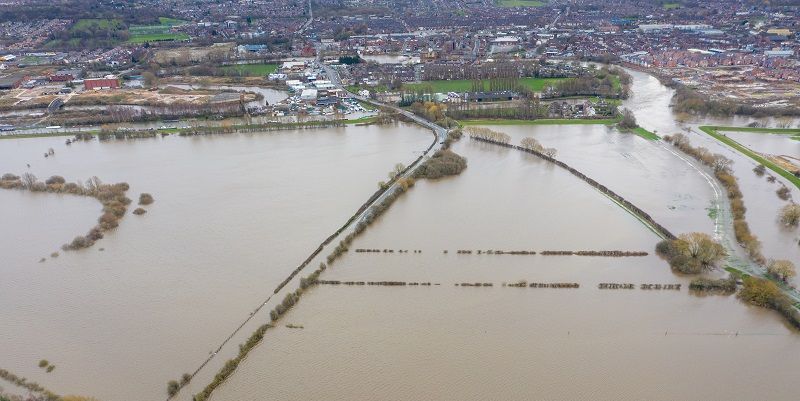
A damning report from MPs says the Government needs to do more to protect critical national infrastructure in the UK from being disrupted by extreme weather.
The MPs - who appointed Suraje Dessai, Professor of Climate Change and Adaptation at Leeds, as their specialist advisor - warn that inaction is risking national security and economic prosperity.
They accuse one Minister of a dereliction of duty.
Government must raise its game on the climate resilience of critical infrastructure
Critical national infrastructure includes roads, rail, power, health, and communications – systems that are required for the safe and efficient running of the country. The MPs, who sit on the Joint Committee on the National Security Strategy, investigated how well the critical national infrastructure could cope with the impact of extreme weather.
Professor Dessai, from the Sustainability Research Institute in the School of Earth and Environment, said: “This report shows how the impacts of a changing climate on critical national infrastructure pose a major threat to the UK’s national security and prosperity.
“Worryingly, the inquiry found a lack of ownership of this topic in central Government.”
“The report makes several important recommendations. It recommends the development of resilience standards and stress tests that address the effects of climate change in the short, medium and long term.
“It also recommends the Government establishes a Minister of State for Critical National Infrastructure Resilience within the Cabinet Office.”
“The Government must raise its game on the climate resilience of critical national infrastructure by also delivering a comprehensive National Resilience Strategy and an ambitious National Adaptation Programme.”
There are already signs that critical infrastructure is struggling to cope with the impact of some severe weather events.
Storm Arwen last November brought extremely high winds to the UK which resulted in almost one million people losing power, some for extended periods of time, in the North East of England and Scotland. In a separate incident, problems with drainage from a railway almost led to a flood at the National Blood Bank in Bristol.
And three people died when a train derailed in Scotland after heavy rainfall in August 2020.
In their findings, the MPs say climate change is already having an impact on critical national infrastructure but that no Minister is taking responsibility to ensure it remains resilient in the face of extreme weather.
They accuse Michael Ellis MP, a Minister in the Cabinet Office until early September and “self-described as the Minister for critical national infrastructure”, of a dereliction of duty for failing to give oral evidence to the committee.
The report makes a number of recommendations, including calls to:
- Establish a dedicated Minister of State for CNI Resilience within the Cabinet Office
- The creation of a statutory forum between the regulatory bodies overseeing critical national infrastructure sectors (for example Ofwat for water companies and Ofgem for energy) to review whether regulators’ price review processes encourage resilience-building
- A programme of regional ‘exercises’ to ensure that locally-based responders to crises – such as the emergency services, the NHS and local authorities – can prepare for and respond well to extreme weather events
Dame Margaret Beckett MP, who chaired the inquiry, said: “There are plenty of examples of the extremely serious impact that climate change has already had on our critical national infrastructure. And there are bound to be more in the future, almost certainly more serious still.
“But the thing I find most disturbing is the lack of evidence that anyone in government is focusing on how all the impacts can come together, creating cascading crises.
“There are simply no Ministers with focused responsibility for making sure that our infrastructure is resilient to extreme weather and other effects of climate change.”
The report is published online: Readiness for storms ahead? Critical national infrastructure in an age of climate change.
More information
For further details, please contact David Lewis in the Press Office at the University of Leeds by email on d.lewis@leeds.ac.uk.